The best practices presented below are concrete measures that can be implemented to promote intercultural living-together at the local level. They can be adapted to different contexts and reproduced in all Luxembourg municipalities.
Best Practices
Bénévolat communal « Grouss Botz »
Charter for living together
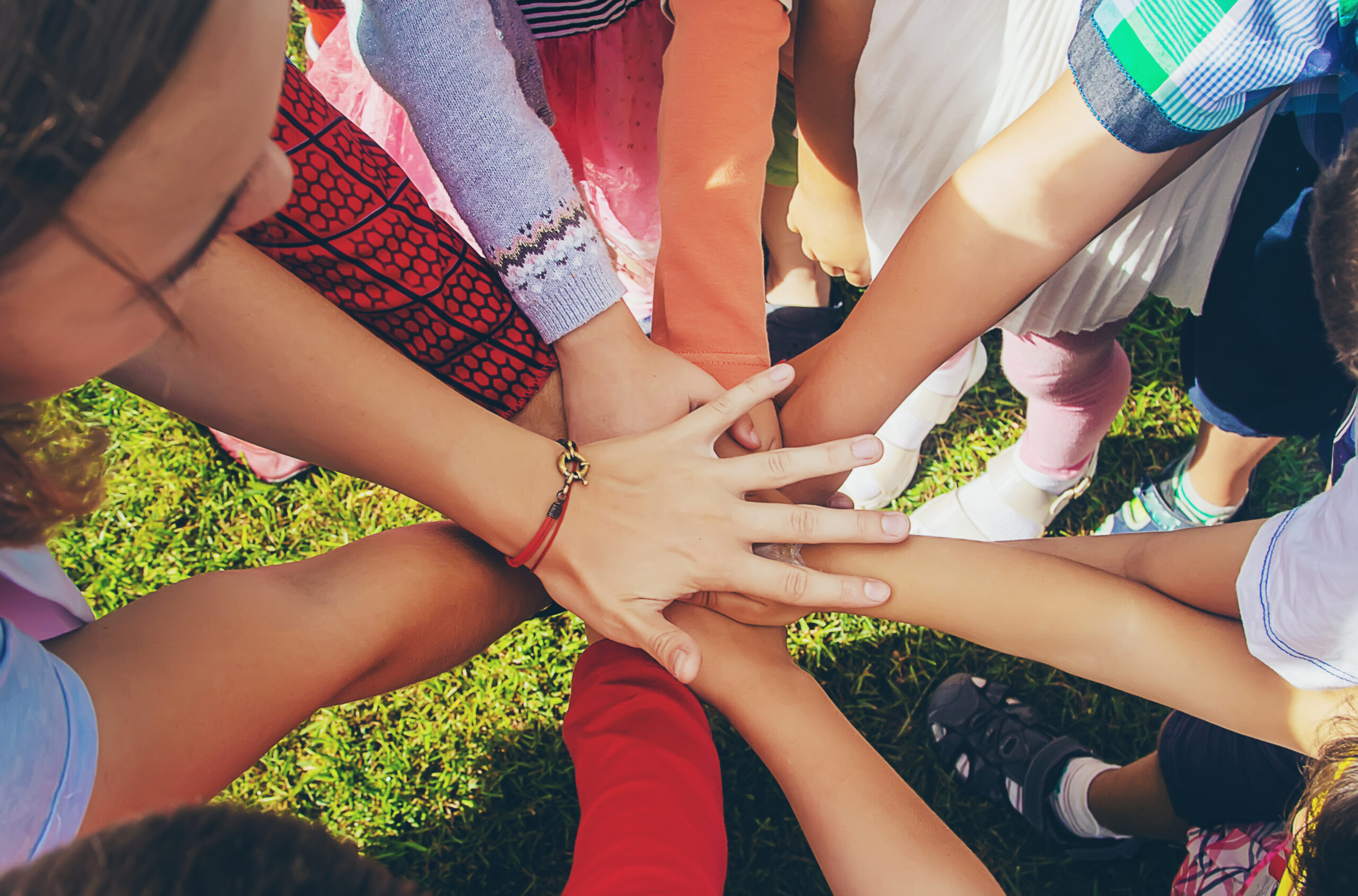
Citizen workshop
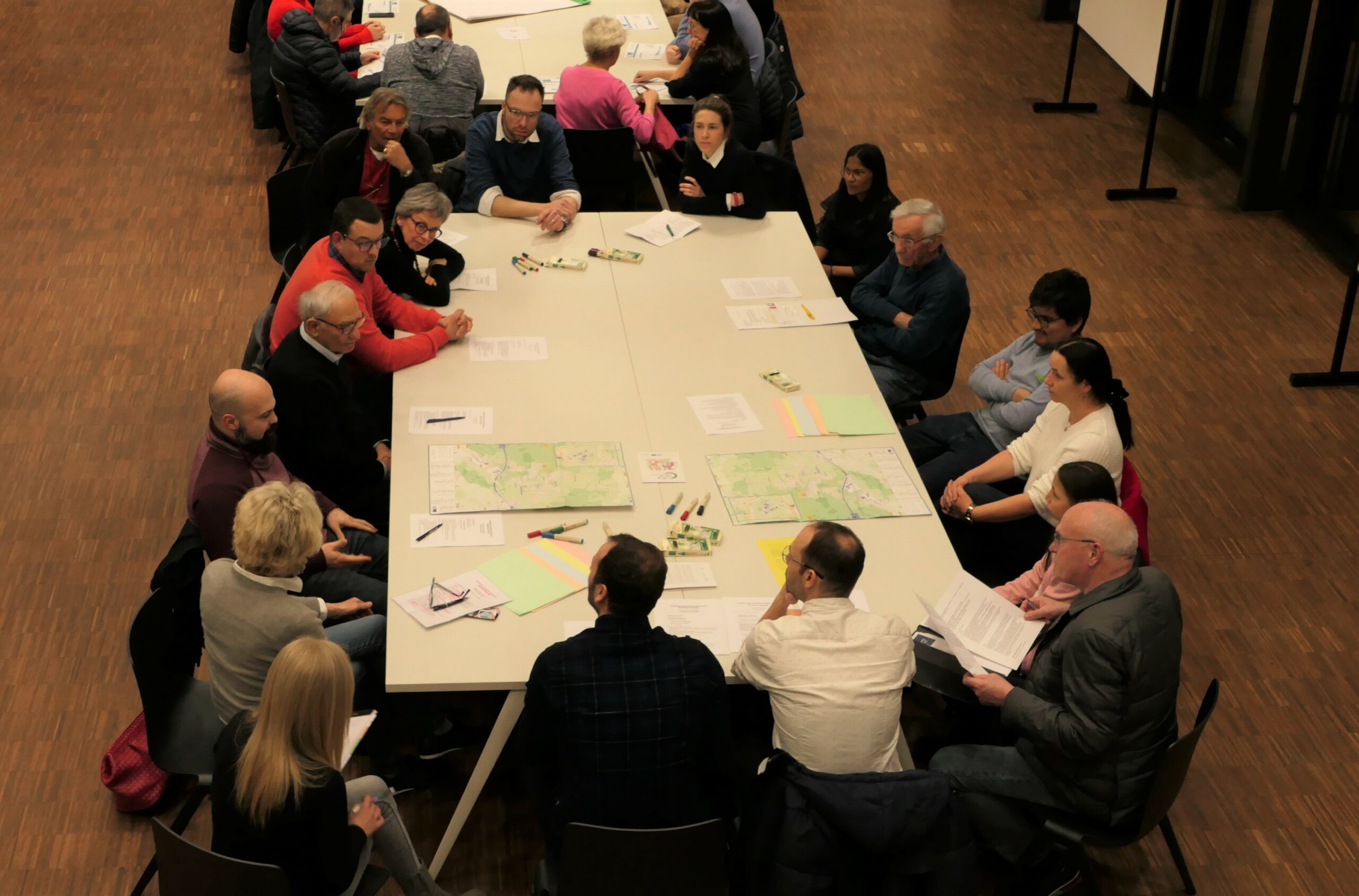
Citizen's Guide
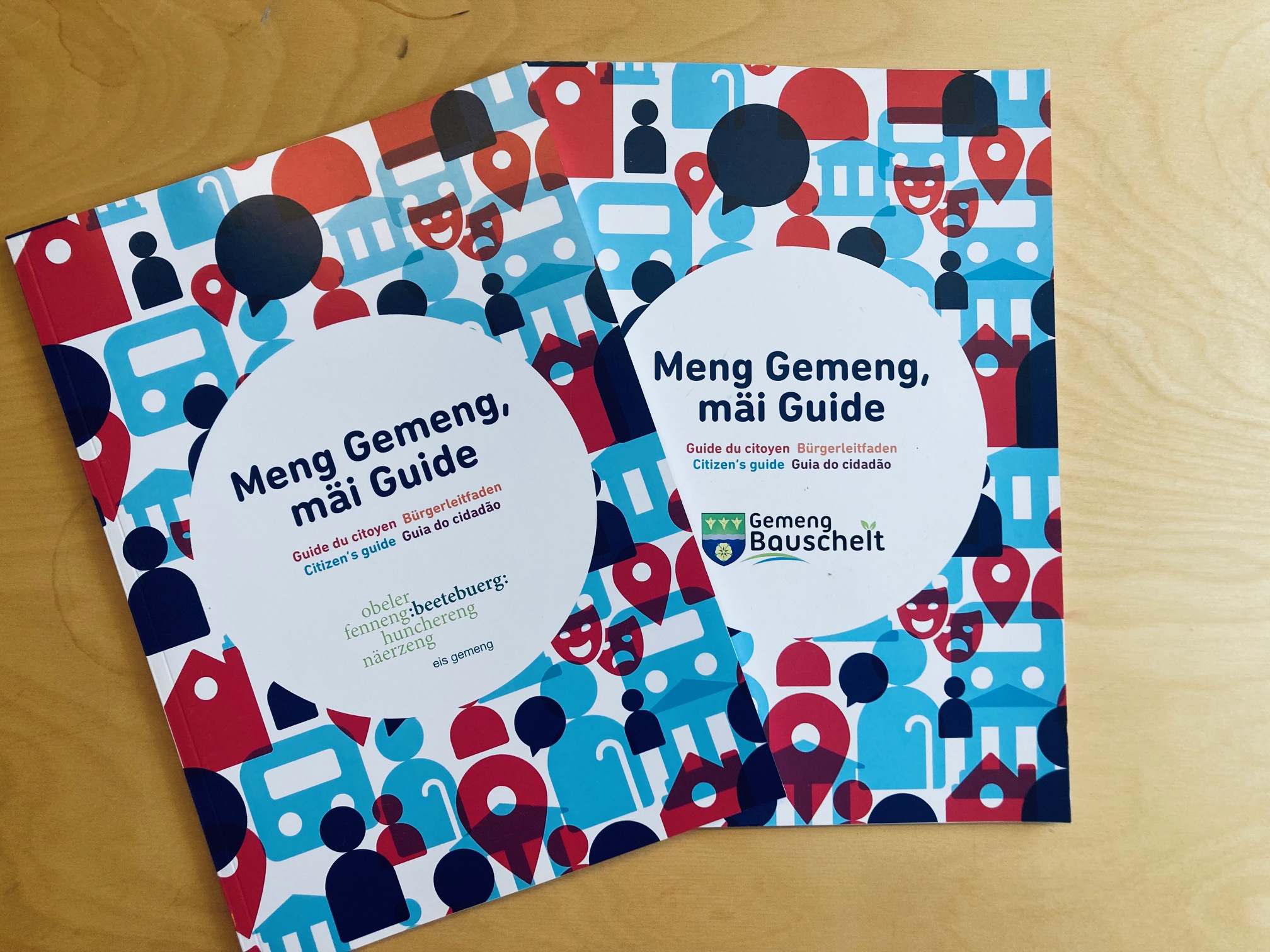
Conference on racism and the fight against all forms of discrimination
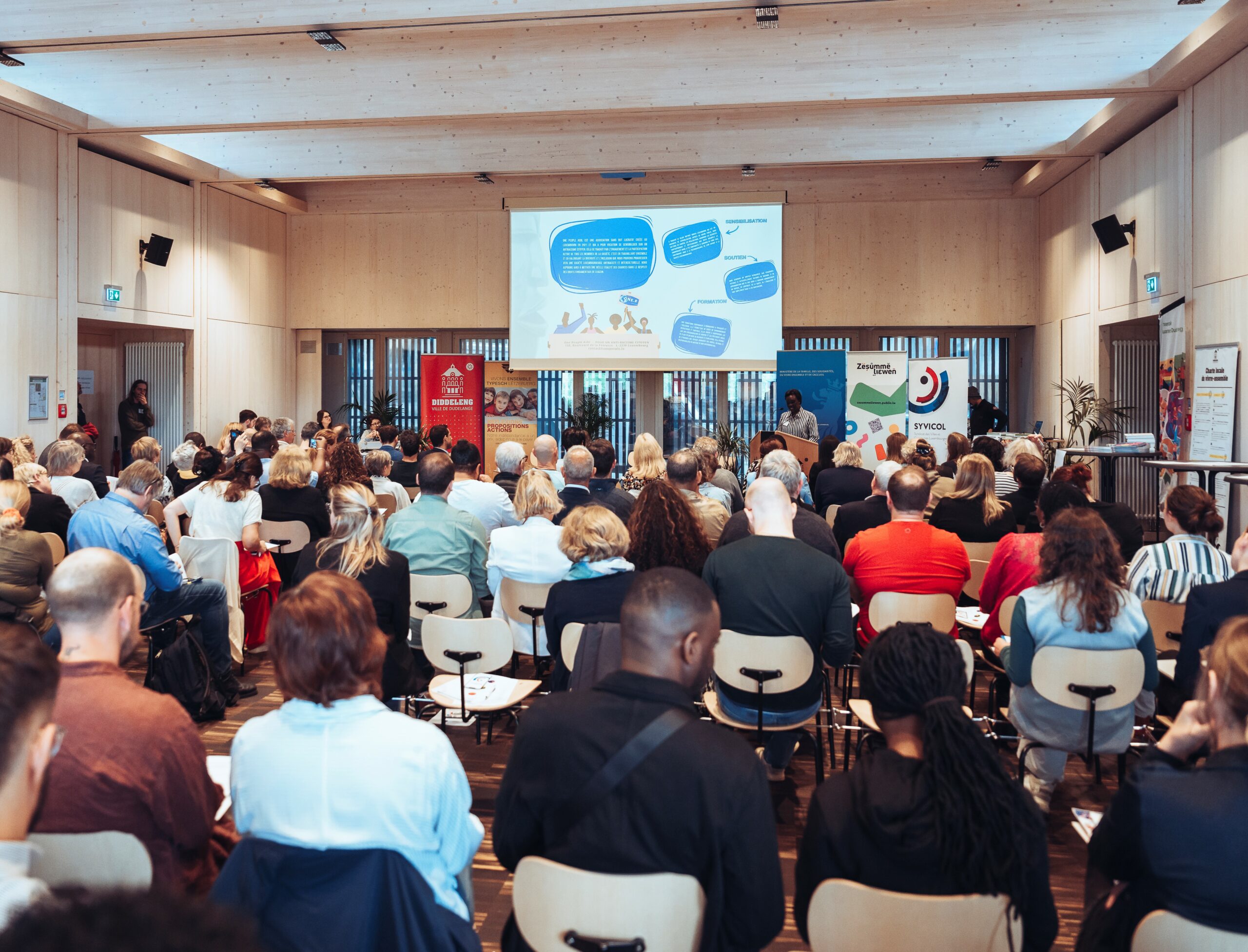
Digital platform for citizen participation
Distribution of pencils of various skin colours

Electoral Meet & Greet
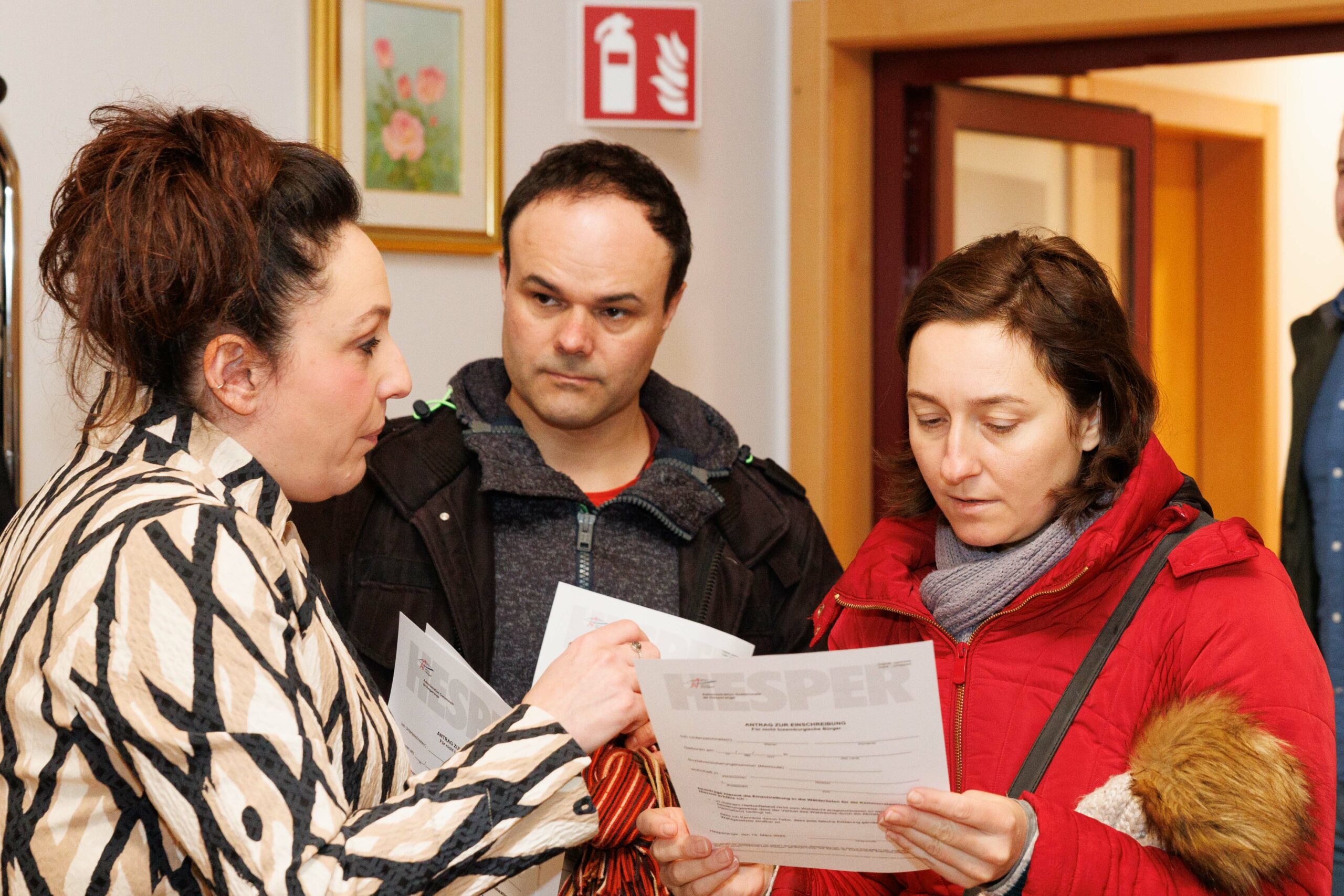
Festival des cultures / Fête interculturelle
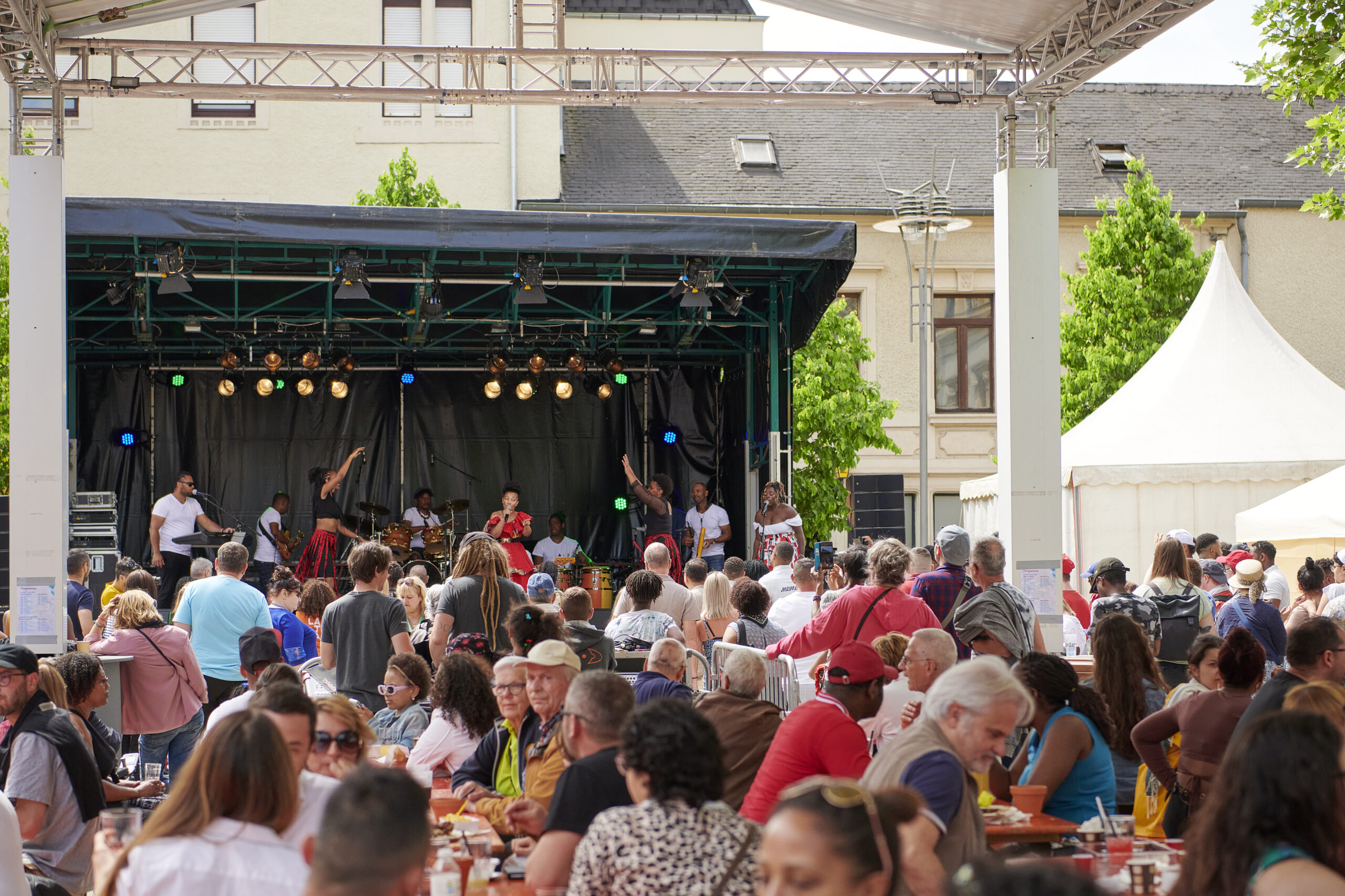
Language Café
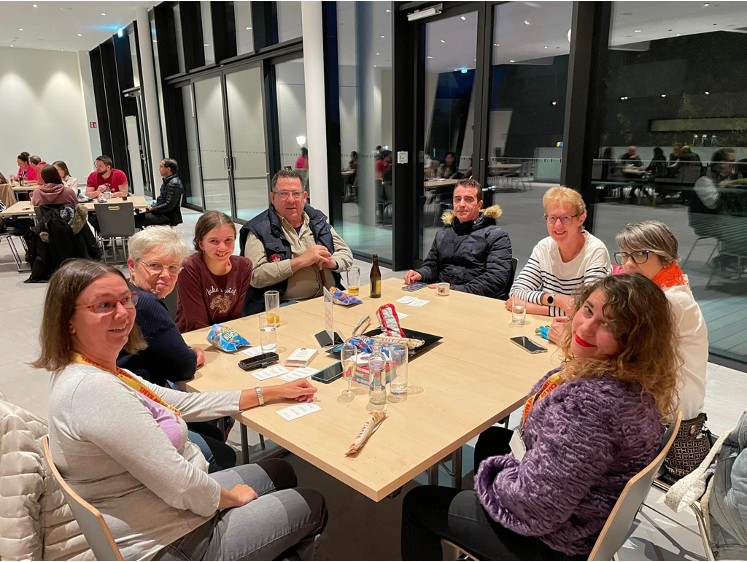
Living Library
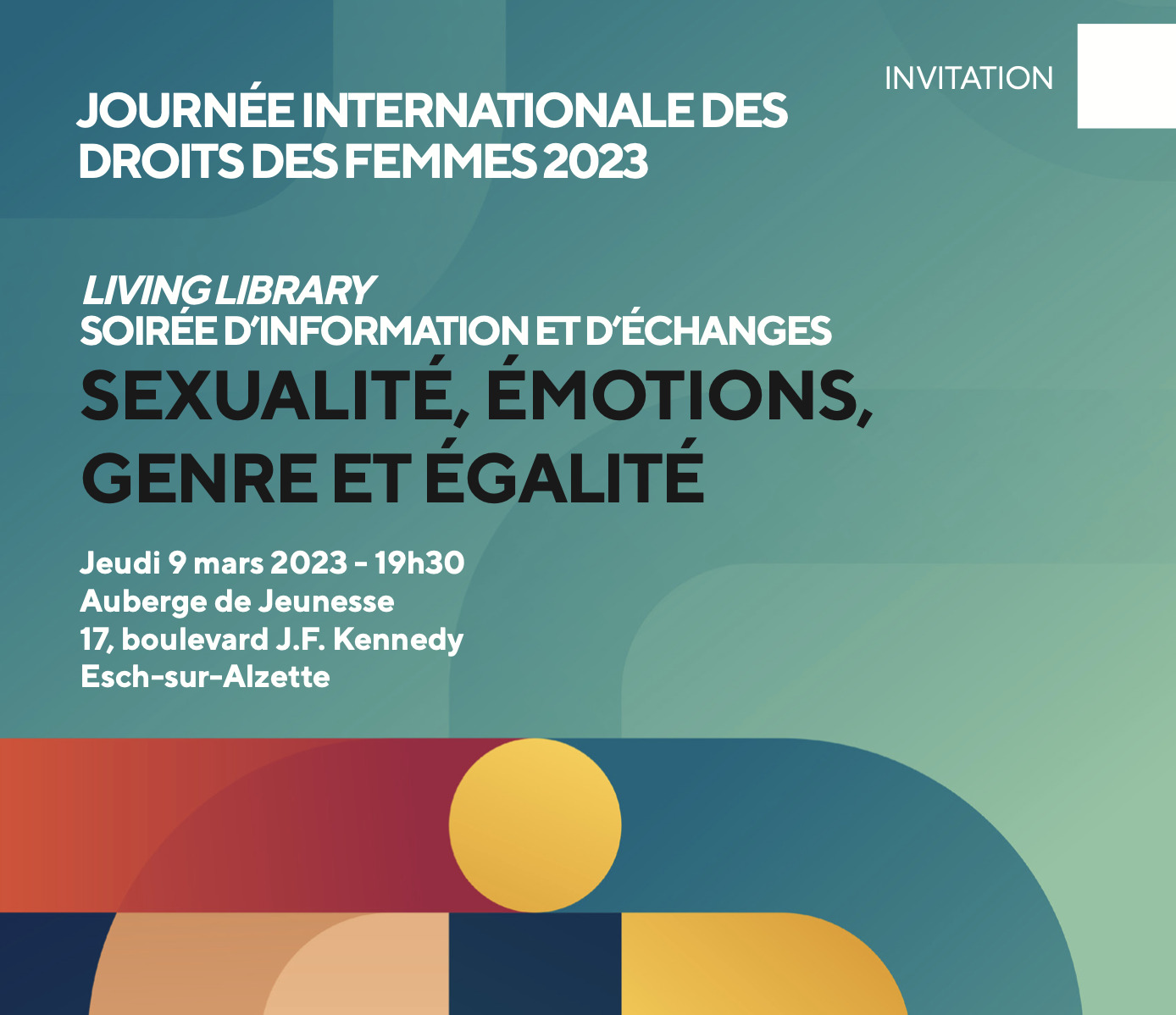
Neighborhood App
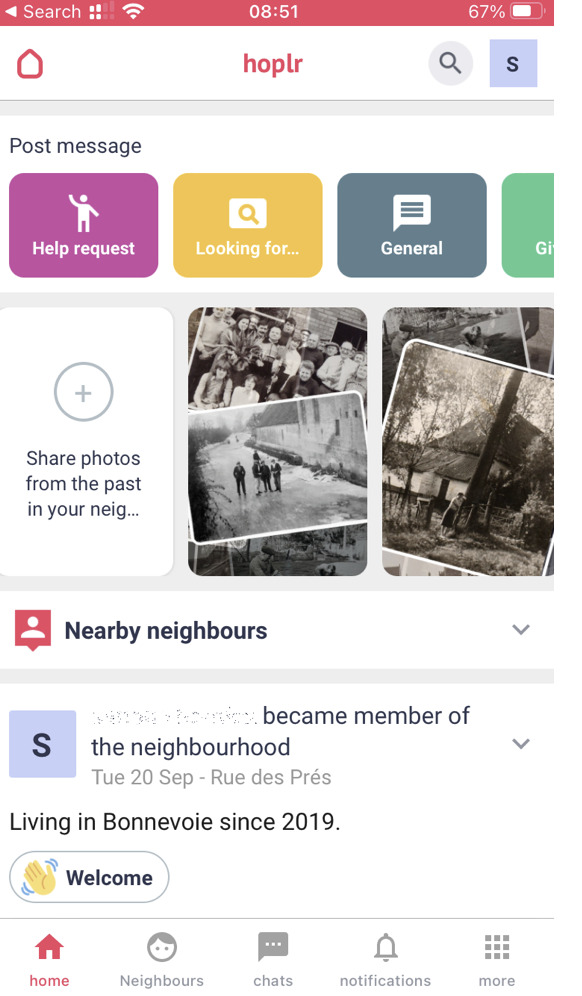
Neighbourhood day
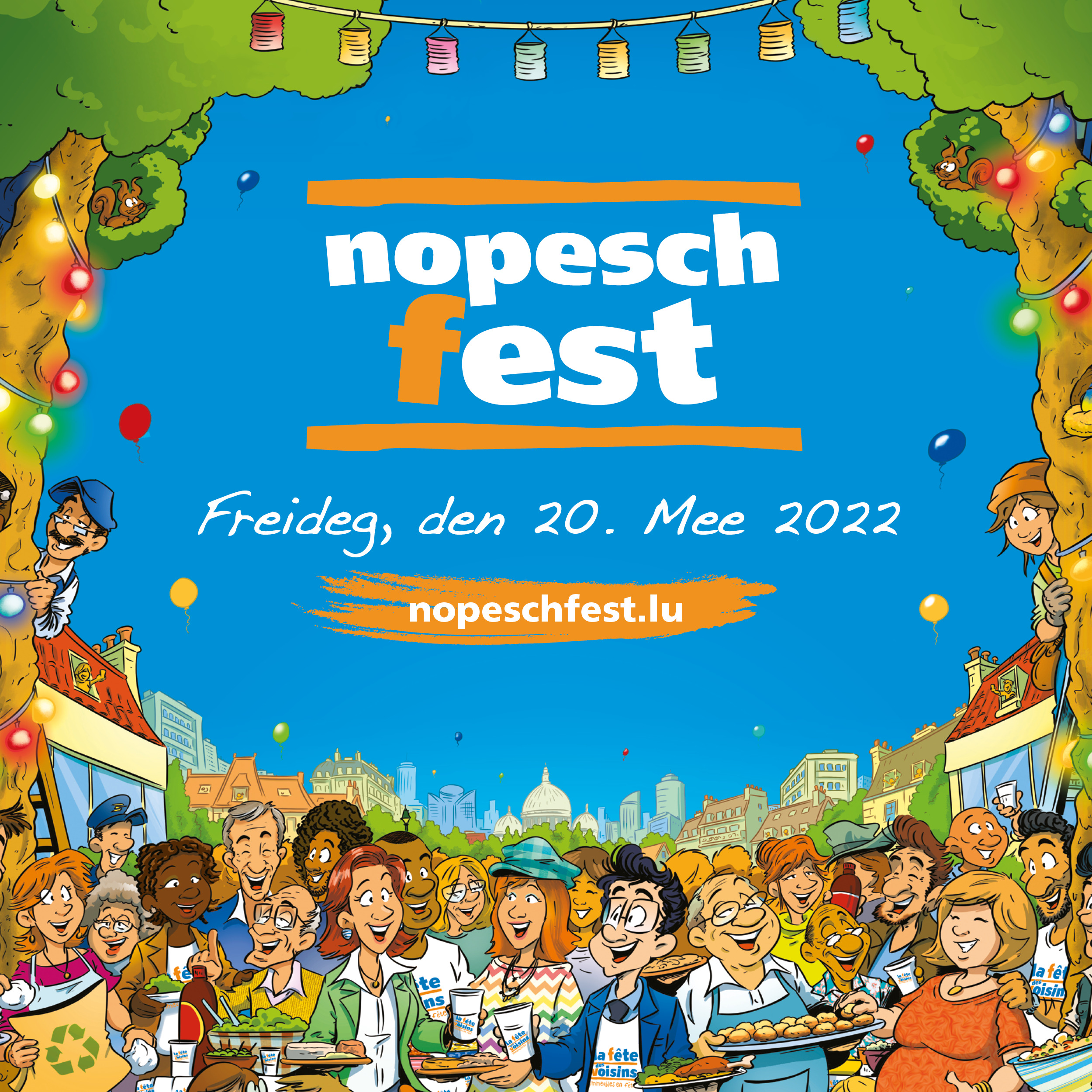
Participatory budget
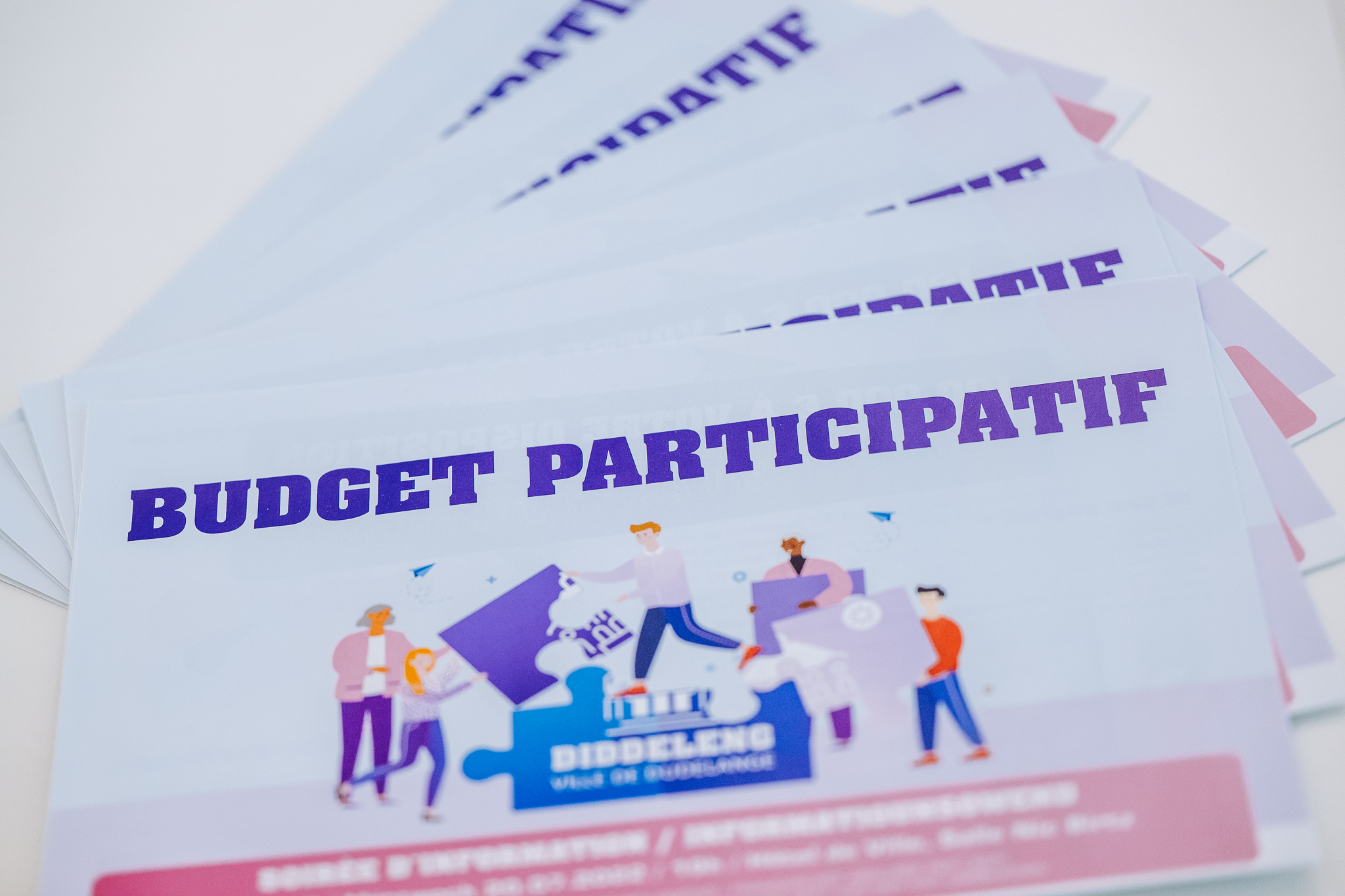
Programme de parrainage pour enfants

QR code translation
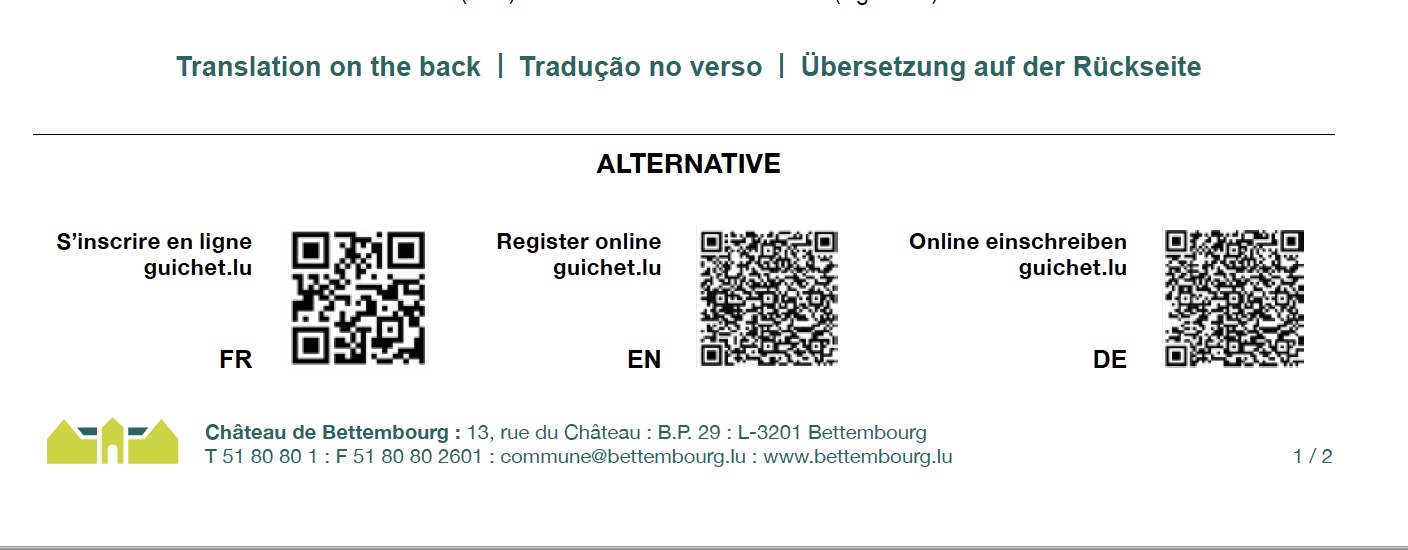
Senior Plan
Theme Month (living together, racism, diversity, etc.)
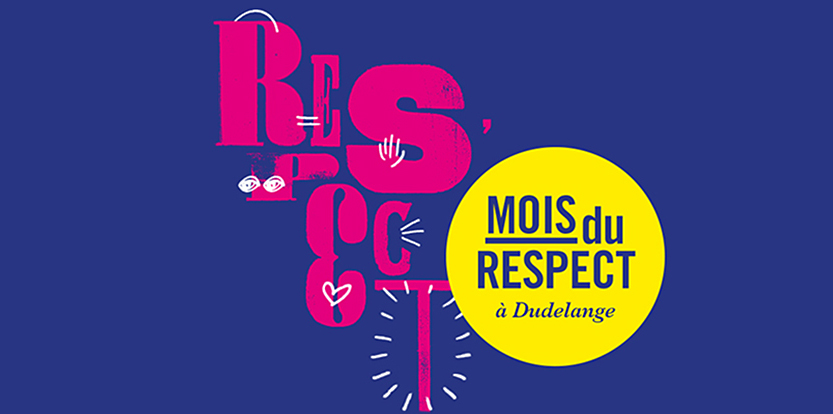
Third Place (Citizen House)
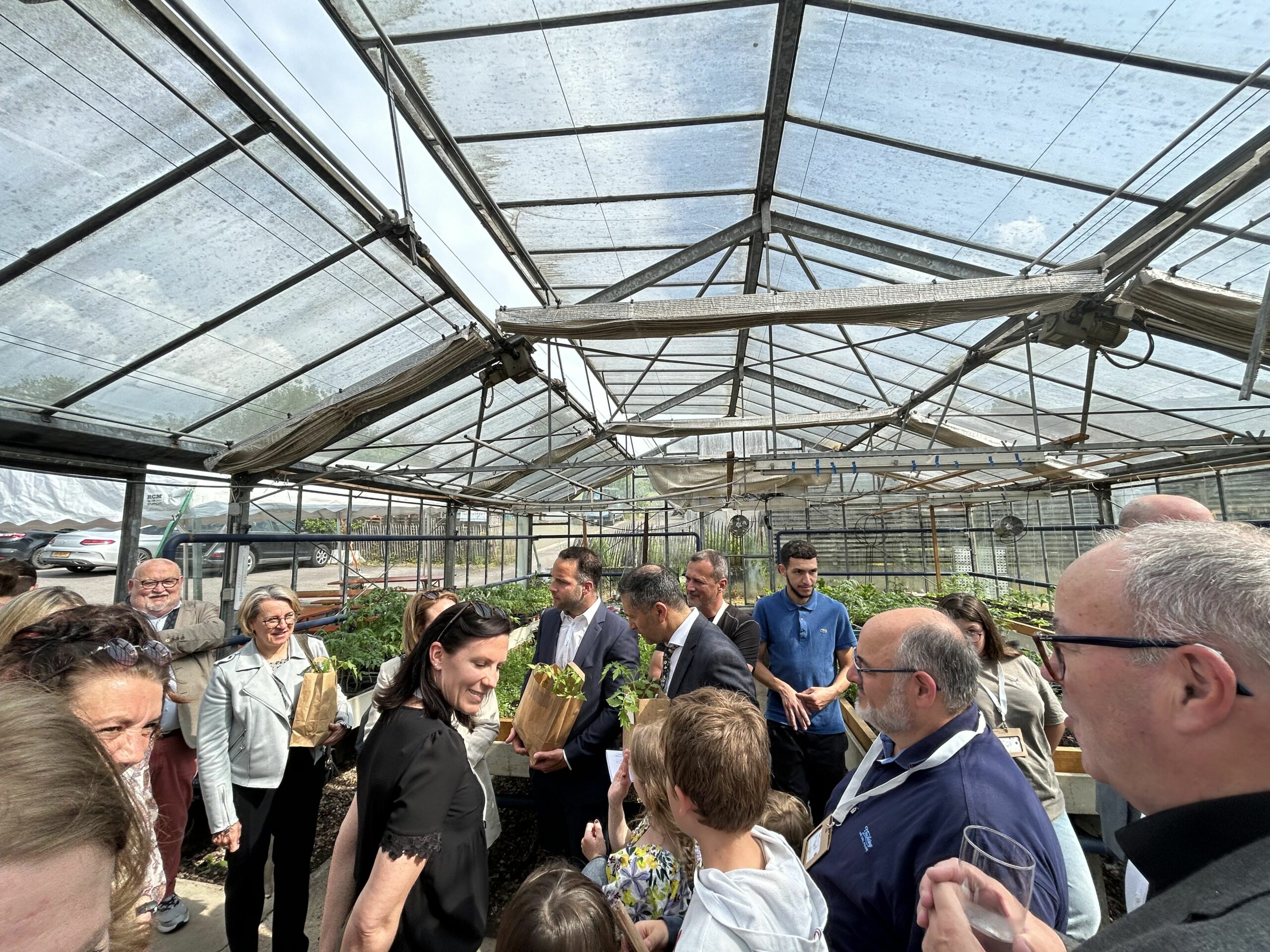
Training for municipal agents – micro-aggressions

Welcome Event for Newcomers
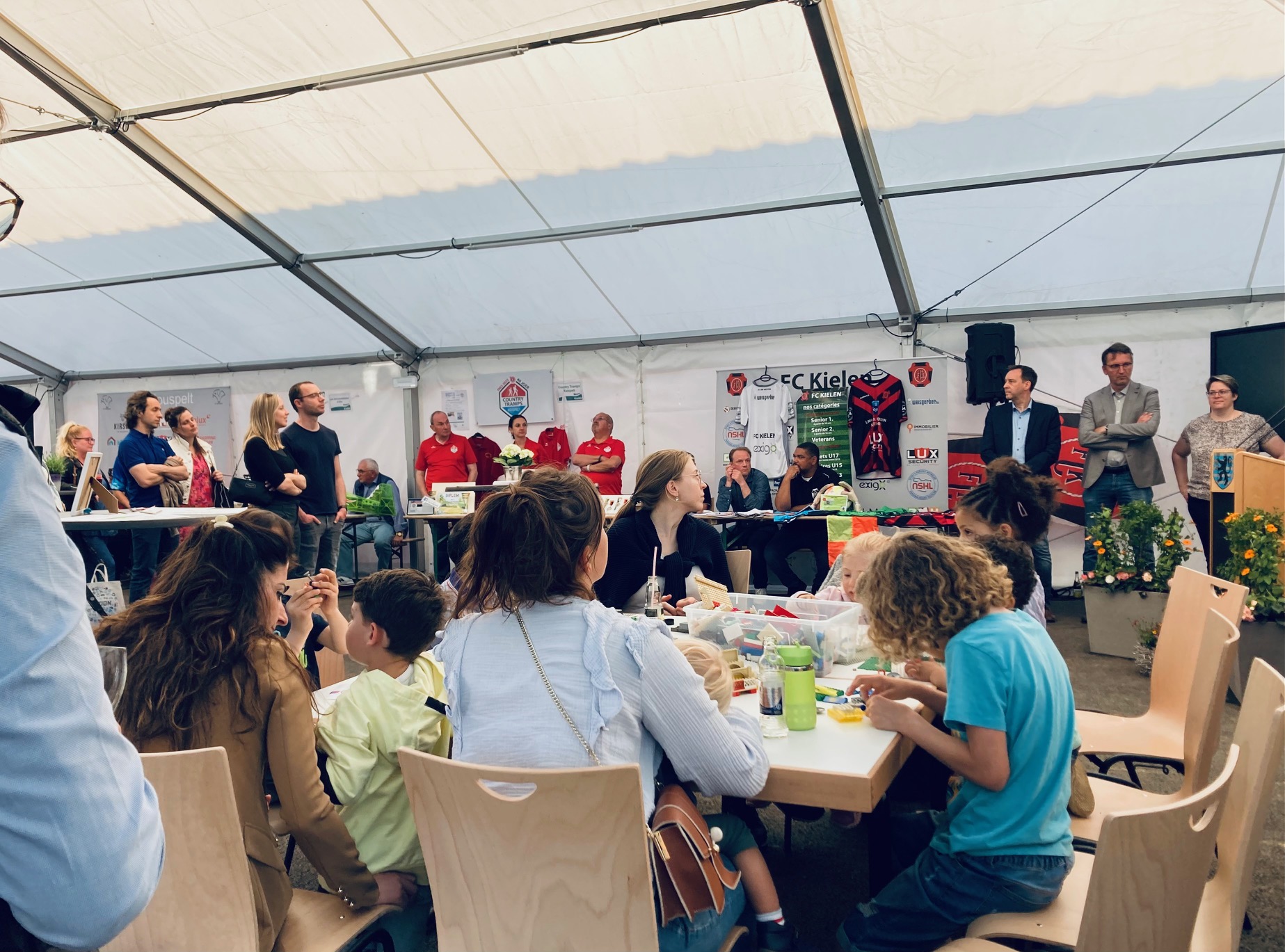
Welcome and orientation

Living-together in municipalities starts with a quality welcome and orientation for new residents. Transparent, multilingual communication and systematic information sharing help residents to feel "at home" and get actively involved in the social, cultural and political life of the municipality.
Languages, education and training
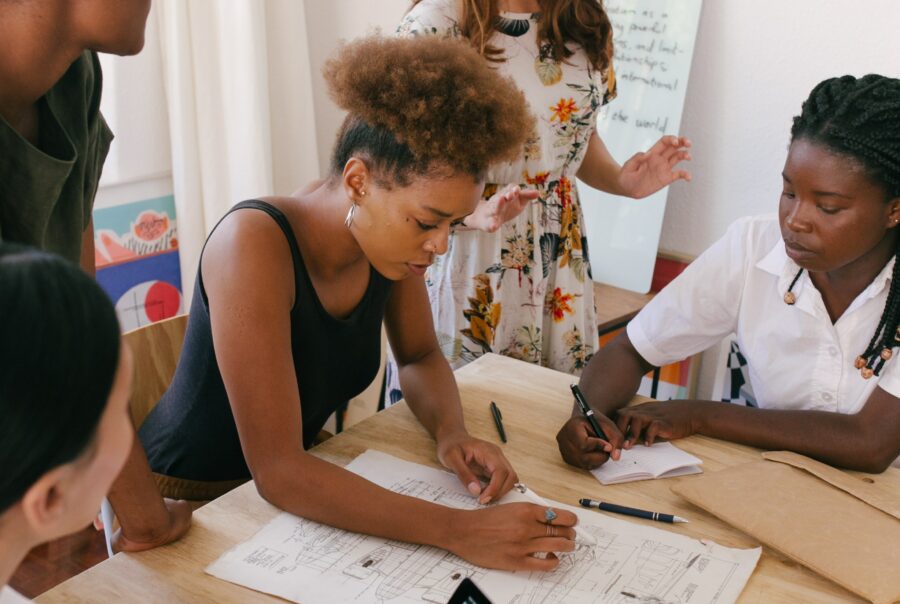
Providing citizens with the opportunity to learn and/or practice a language increases their chances of actively participating in local life. Combined with a range of training courses on subjects related to interculturality, municipalities can create a living and working environment that promotes inclusion and living-together.
Political and civic participation
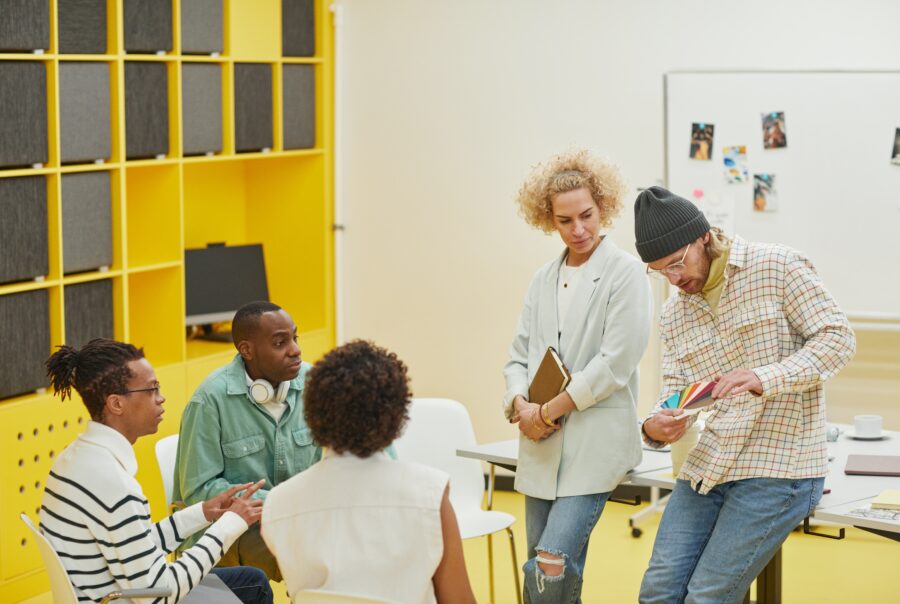
Encouraging citizens to take an active part in local decision-making should not be limited to informing them of their right to vote. The provision of citizen training and discussion platforms, and the funding of citizen-led projects, are just as important in enabling everyone to participate.
Volunteering and intercultural encounters
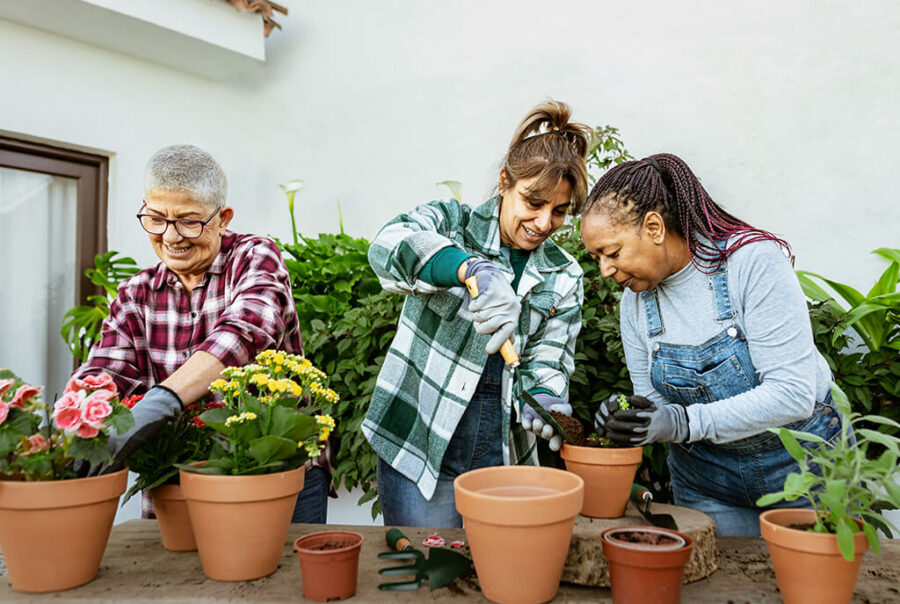
Creating spaces to celebrate diversity is an important factor in living-together. Getting to know one's neighbours, building networks, launching joint activities in "third places": this is how citizens move from being "guests" to being "hosts", and get involved as volunteers in local activities.
Diversity and the fight against discrimination
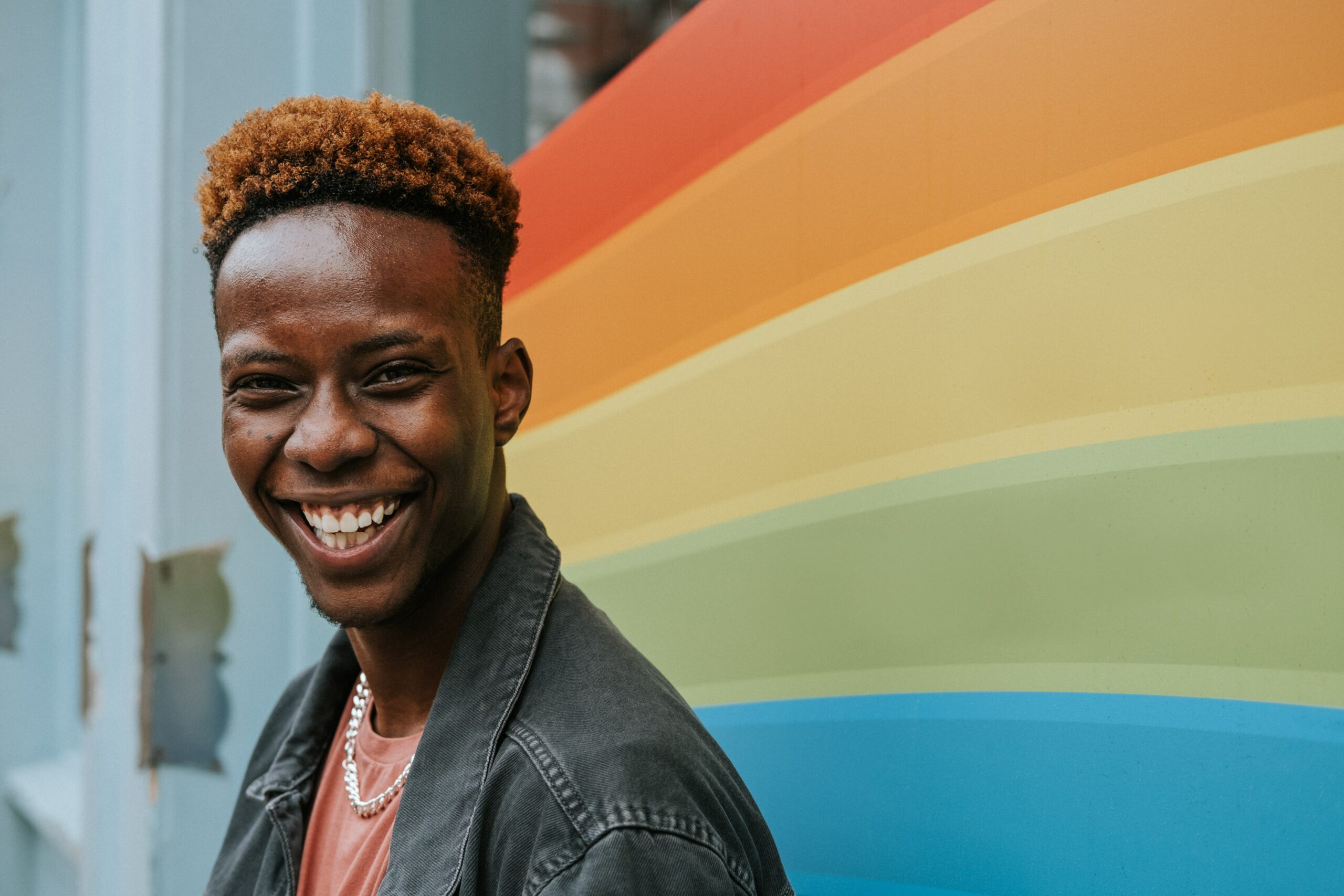
Intercultural living-together is based on mutual respect and solidarity between all citizens, regardless of age, gender, culture, religion or ethnicity. By setting up mediation structures, racism prevention programmes or inclusion projects, municipalities can establish diversity as an asset, thereby promoting social cohesion.

Bénévolat communal « Grouss Botz »
Description
Souvent on associe le bénévolat à un engagement dans le cadre d’une association. Mais les communes aussi peuvent définir des missions et par conséquence promouvoir du bénévolat au profit de la communauté locale. Un exemple classique est l’ activité « Grouss Botz » , c-à-d une activité de ramassage de déchets abandonnés dans la nature ou le long des voiries.
Objectives
Favoriser la cohésion sociale, la convivialité et la solidarité dans le quartier ou le
village.
Permettre aux citoyens de créer du lien social à travers des activités qui ont du sens.
Créer un sentiment d’appartenance par rapport à la société locale.

Charter for living together
Quality of life and living together well are values to be promoted in our municipalities. Each generation has its place and everyone is welcome. A local charter for living together well can be drawn up to support the implementation of these values, living together and mutual understanding.
Ideally, the content of the charter is gathered as part of a participatory process during which various advisory committees, municipal department managers and a panel of citizens and people working in the municipality are questioned about living together. The charter brings together the ideas of all these people on the art and manner of successfully living together in the community. Everyone must be able to feel at ease in the municipality, and to achieve this, everyone must contribute to living together in a respectful community.
Only together can we build the society we want to live in.
Every resident and worker is invited to sign this charter. A person’s signature symbolises their commitment to contributing to living together in peace. The charter can be offered for signature at various events, particularly those that open up a meeting space.
Objectives
- Promoting mutual respect
- Encouraging solidarity
- Strengthening social cohesion
- Fighting discrimination
- Encouraging dialogue and communication
- Establishing shared rules for life
- Raising awareness of civic values
- Preventing and managing conflict
- Promoting sustainable development


Citizen workshop
Citizen workshops are an opportunity to invite all residents to take part in collective consultation or decision-making. Organised by the local authority, the workshop brings together decision-makers, citizens, committee representatives and associations to co-create/co-design solutions for living together in their community. Participatory methods and appropriate workshop facilitation guarantee high-quality results.
Objectives
- Discuss with the citizens.
- Listen to their ideas and concerns on various topics.
- Discuss plans that interest them and that can be achievable in the short, medium, or long term.


Citizen's Guide
The citizen’s guide is an essential form of communication between the local authority and its residents – particularly newcomers. It is sometimes referred to as a “welcome book”, “welcome guide” or “welcome book”.
The citizen’s guide is designed to inform newcomers about the infrastructure, services, education and reception facilities in their local authority, as well as about life and culture in Luxembourg.
Objectives
- Show new residents that they are welcome
- Provide practical information on local life (municipal services, associations, etc.)
- Stimulate citizen involvement and interaction in areas such as volunteering, political participation, language learning and practice.
- Foster a climate of exchange, well-being, integration and social cohesion.


Conference on racism and the fight against all forms of discrimination
Racism takes many forms in our daily lives: from overt racism, through structural racism, to what are known as micro-aggressions.
To tackle the subject with a wide audience, it can be useful to organise a conference on racism, anti-racism and the fight against all forms of discrimination, possibly followed by a critical thinking workshop.
These activities can be organised by a local authority as part of a commitment to intercultural coexistence, of which a clearly anti-racist attitude is an integral part. A conference of this kind provides an opportunity to learn about racism, which affects every of us, and what we can and must do to combat it. The critical thinking workshop is optional, but serves to delve deeper into the subject with a smaller audience.
Objectives
- To raise awareness: To pass on information about current forms of racism and promote intercultural understanding.
- To identify and eliminate prejudice: To encourage participants to identify and reflect on their own prejudices and cognitive biases.
- Strengthen the concerned people
- Promote solidarity: Strengthen communities and create networks to fight racism together.
- Anti-racist practice: Providing methods and tools for actively combating racism, whether in the private, professional or public sphere.
- Promoting civic courage: Encouraging people to intervene in racist situations and show solidarity, and giving them the means to do so.
- Promote dialogue: Create a space for open discussion and exchange of experiences and perspectives.


Digital platform for citizen participation
A digital platform for citizen participation is an online tool integrated into a municipality’s website (or that of another local or national authority). This tool serves to inform residents about ongoing and upcoming projects and to actively involve them in shaping those projects. Citizens are invited to share their feedback, voice concerns, suggest alternatives, propose changes, or enrich the initial plans with their own ideas.
Description
A digital platform for citizen participation is an online tool integrated into a municipality’s website (or that of another local or national authority). This tool serves to inform residents about ongoing and upcoming projects and to actively involve them in shaping those projects. Citizens are invited to share their feedback, voice concerns, suggest alternatives, propose changes, or enrich the initial plans with their own ideas.
Objectives
The digital participation platform taps into the knowledge and expertise of residents to co-create a wide range of local initiatives — including those that foster inclusive and intercultural living together. It encourages community engagement, strengthens local democracy, and empowers citizens to take an active role in shaping the future of their municipality.

Distribution of pencils of various skin colours
Racism often has its origins in our language. Discriminatory stereotypes and preconceived ideas are unconsciously passed on to new generations. There is still a lot to be done in terms of raising awareness in many contexts.
The problem is well illustrated by the example of the pink “Hautfaarw” pencil: for a long time, only one shade was designated as “skin colour” in our children’s coloured pencil boxes, namely a light pink. This designation is common in Luxembourgish and in many other languages (for example, “Skin Tone/Colour” in English). However, from light beige to very dark brown, there are an infinite number of skin tones and colours. So language is already setting a standard that excludes many people. Many children cannot realistically draw themselves, their friends or their parents with a single pencil declared as their skin colour. So it’s not surprising that at a certain age they ask themselves, “Am I normal?”
The distribution of pencils of various skin colours demonstrates a refusal to tolerate racism and discrimination, and seeks to actively contribute to an inclusive society where diversity is valued.
One way of getting this message across is to give primary school children a set of pencils in a variety of skin tones, along with a letter of explanation and awareness to parents. This can be done as part of a special occasion, such as Europe Day on 9 May (which carries the slogan “United in diversity” since 2000).
Objectives
Our vision is of an open society, free from prejudice, racism and discrimination. By distributing skin colours to all children at primary school, we want to enable children to discover for themselves the value of diversity and help parents, teachers and/or educators to educate the new generation in a way that takes diversity into account, without transmitting stereotypes


Electoral Meet & Greet
In order to stimulate political participation, it is important to ensure that residents have access to the information they need to become actively involved. Getting to know the local political players is a good starting point. An excellent way of ensuring that residents have the opportunity to get to know their political representatives is to organise a Meet & Greet event. This can be particularly useful in the run-up to local elections. However, the Meet & Greet is compatible with other events you organise in your municipality and could also be incorporated into a welcome event for new arrivals.
Objectives
- To inform voters about the main policies and values of the political parties standing in the municipal elections,
- To create direct contact between voters and candidates representing the respective parties,
- Enable candidates in majority municipalities to stand,
- To provide information on the rules to be observed in order to vote correctly,
- Encourage non-Luxembourgers to register to vote.
- Raise visitors’ awareness of civic participation, which is not limited to the right to vote but takes place on a day-to-day basis through social, community, cultural and community involvement, etc.


Festival des cultures / Fête interculturelle
Le festival des cultures/la fête interculturelle est un événement dédié à la découverte, à la valorisation et au partage des différentes cultures du monde. À travers des activités artistiques, musicales, culinaires et artisanales, un tel festival permet de mettre en lumière la diversité culturelle qui compose nos sociétés.
Organisé dans un esprit de tolérance et d’ouverture, le festival offre à chacun la possibilité de s’exprimer, de faire connaître ses traditions et de découvrir celles des autres. Il constitue un véritable pont entre les peuples, favorisant la rencontre, le dialogue interculturel et le vivre-ensemble.
Que ce soit par des spectacles, des expositions, des stands gastronomiques ou des ateliers participatifs, le festival des cultures est un moment fort où l’on célèbre la richesse des identités culturelles dans une ambiance festive, éducative et conviviale.
Objectives
- Découvrir d’autres cultures à travers la musique et la gastronomie.
- Favoriser l’échange, le partage et la convivialité entre des personnes de différentes communautés, cultures et pays.
- Contribuer au vivre-ensemble interculturel au niveau local.
- Encourager le brassage socio-culturel et favoriser l’échange entre les différentes classes sociales par la création de moments conviviaux, accessibles à tous (gratuité des concerts et des ateliers participatifs).


Language Café
A language café, “Sproochecafé” or polyglot café is an excellent opportunity to bring together people from different backgrounds who want to develop their language skills through practice. These are conversation tables divided according to language. The organiser can propose one or more tables in English, Luxembourgish, Portuguese, French, German, etc. The choice of languages depends on the volunteers running the table and the number of participants wanting to practise the language proposed.
Topics can be pre-selected or discussed freely during the event.
The minimum level of language proficiency for participants should be A1 completed. However, it should be borne in mind that learners’ progress may vary and that A1 is only a reference.
Objectives
- Practise a language,
- Enrich vocabulary and improve oral expression,
- Facilitate links between residents,
- Discover and value the linguistic wealth of the participants,
- Help overcome the fear of speaking.
- A small group led by a volunteer facilitator to discuss a theme from everyday life.


Living Library
Meeting local personalities can be an important part of feeling “at home”. It is certainly one of the factors that contribute to living together and feeling connected to the local community.
Good Living Library practice can be a separate event or it can be part of a larger event.
The Living Library concept is based on setting up a library where books are replaced by people. For a period of 15-30 minutes, the public can ‘rent’ the time of a local personality for a conversation on an interesting subject.
Examples of “living books” are: local artists, local activists, local entrepreneurs, etc.
Objectives
- To combat discrimination by creating opportunities for conversation.
- To break down stereotypes.
- To encourage understanding and a plurality of viewpoints.
- To provide opportunities for honest dialogue.


Neighborhood App
A neighborhood App offers neighbors a free, closed and secure social network, focusing on social interaction between residents and their involvement in the neighborhood. The application’s neighborhoods are geographically defined. Access is based on address, and only members have access to messages from the neighborhood. Ideally, thanks to offline meetings and the involvement of residents, it fosters social cohesion in your community.
What’s more, this application keeps residents informed about relevant events, services and projects in their neighborhood. Neighborhood messages remain confidential and are not accessible to external parties. In addition, the application only authorizes the participation of external parties who provide non-commercial value to citizens, thereby guaranteeing the integrity of the platform and the preservation of the community interest.
Objectives
- To combat isolation.
- Get to know your neighbors.
- Lend or borrow tools or equipment.
- Report the loss of a pet.
- Find recommendations for local professionals (plumbers, baby-sitters, etc.).
- Take part in discussions on planning and development projects.
- Organize neighborhood events such as garage sales and parties.
- Receive information from the local council and other local organizations.
- Add neighborhood activities to the calendar.
- Encourage residents to offer all kinds of voluntary activities.
- Facilitate meetings and exchanges between old and new residents of the Commune, between Luxembourgish citizens and foreigners, and between young and old.
- Implement a participatory budget.


Neighbourhood day
The Neighbors’ Day is a celebration of French origin whose aim is to enable neighbors to get together in a convivial atmosphere, to break the isolation that is becoming more and more widespread in towns and villages, and to try to create a sense of belonging to one’s locality.
In general, the event is organized by the neighbors themselves, with the municipality relaying the information and providing logistical support (traffic barriers, advertising banners, benches and beer tables, etc.).
Objectives
- Promote social cohesion, conviviality and solidarity in the neighborhood or village.
- Promote a sense of community in your neighborhood.
- Create a sense of belonging in your community.


Participatory budget
The “participatory budget” enables local residents to propose citizen projects and take part in budgetary decisions by voting for their favourite project(s). This participatory approach is part of a drive to involve citizens in projects designed to improve the quality of life in the local authority (town planning, mobility, culture, heritage, social action, schools, youth and sports, etc.).
Objectives
- To encourage local residents to get involved in local social, political and community life,
- To encourage residents to identify with the place where they live,
- Carry out projects of general interest, designed to improve the quality of life in the community,
- Contribute to community life and encourage collective action.


Programme de parrainage pour enfants
Le programme de parrainage vise à jumeler un enfant avec un parrain/une marraine bénévole adulte afin de favoriser des moments d’échange et de découverte. Sur une période prédéfinie et à travers un certain nombre de rencontres, le duo participe à diverses activités extrascolaires. L’objectif est de partager des expériences, d’explorer de nouvelles perspectives et de découvrir différentes cultures et modes de vie.
Objectives
Le programme de parrainage a pour but de promouvoir l’équité des chances dans l’éducation et de lutter contre les inégalités sociales à travers un concept préventif et accessible.


QR code translation
This is a document written in French and/or Luxembourgish containing all the necessary explanations on the subject or event. To ensure that everyone can understand the message, several QR codes are available at the bottom of the page, offering different languages so that people who speak different languages can scan and read the text in the desired language. This makes documents much easier to understand, while making them more readable and less burdensome.
Objectives
- Stimulate involvement and interaction between citizens in different areas,
- to foster a climate of exchange, well-being, integration and social cohesion.


Theme Month (living together, racism, diversity, etc.)
The theme month will take the form of various interactive activities: training for the general public and socio-educational services, evening debates and film-debate sessions, conferences open to the public, language cafés and other events. The aim of these initiatives is to maintain or create direct contact with the population and to discuss different forms of respect (or other subjects).
Theme months can focus on a very specific subject. For example, the Month of Respect 2023 in Dudelange focused on a specific theme: communication. The slogan was: “Say, how do you talk to me? – “So, wéi schwätz du mat mär?!”
This project is based on the idea that respect in interpersonal relations is a continuous learning process. If we are to continue to live in a respectful, tolerant and cohesive society, it is essential to increase the number of experiences of respectful practices.
Objectives
- Raise citizens’ awareness: Inform and educate the public about the values of living together: respect, tolerance, equality and solidarity through various activities and events.
- Identify and eliminate prejudice : Encourage participants to identify and reflect on their own prejudices and cognitive biases.
- Strengthening social cohesion : Encouraging positive interactions between different groups in the community to strengthen social ties and promote inclusion.
- Promoting cultural diversity : Celebrating the city’s cultural diversity and encouraging appreciation and respect for different cultures and backgrounds.
- Engaging citizens: Involving residents in discussions around respect. Organise debates and discussions to address issues related to respect and tolerance.
- Training and development: Offer training and workshops to develop professional skills, as well as promoting respectful practices.


Third Place (Citizen House)
Led by local networks of volunteers eager to propose and share all kinds of activities, third places bring together people of all origins and cultures, outside a structured associative framework.
Generally speaking, third places are open to all, enabling residents to get together, exchange ideas and get active. In particular, it offers single and vulnerable people (seniors citizens, single parents, foreigners who don’t speak the local language, etc.) a welcoming and entertaining environment, without structure or organizational constraints. The resources are multiple and specific to each community, since they are provided by the residents themselves, through their voluntary commitment. Every inhabitant, every person with or without a commitment to an association or organization, has talents, skills or desires to share.
Objectives
- To strengthen social cohesion and intercultural and intergenerational exchanges.
- To combat isolation.
- Empower and actively involve residents.
- To encourage voluntary work and civic participation.
- Encouraging and supporting residents to offer all kinds of voluntary activities.
- Facilitating meetings and exchanges between old and new residents of the community, between Luxembourgers and foreigners, and between young and old.


Training for municipal agents – micro-aggressions
Managing diversity in the workplace requires a set of skills from team members. Learning these skills is particularly important for municipal agents in order to improve the service they offer to citizens, as well as to make the municipality an employer of choice for everyone. One of the steps is to raise awareness of micro-aggressions that can occur intentionally or unintentionally in the day-to-day life of a team. This training focuses on the definition of micro-aggressions and its examples in the workplace, the different types of micro-aggressions (micro-aggressions, micro-insults, and micro-invalidations) and the difference between micro-aggressions and harassment. Participants can learn about the physiological impact of (long-term) micro-aggressions on a person, and to make the difference between the intention of an act and the impact of that act. In this way, team members are made aware of the power games that can take place in the workplace and learn how to respond assertively.
Objectives
- To understand the concept of micro-aggressions (in the workplace) and their impact;
- Prevent micro-aggressions in everyday work life in order to improve the work climate;
- Promote more benevolent communication in the workplace;
- Understand how to act and react to micro-aggressions.


Welcome Event for Newcomers
A welcome event for newcomers is a regular event organised for citizens who have recently joined the local municipality. It is an excellent starting point for newcomers to get to know the municipality better and to meet their neighbours.
Objectives
- To get to know the commune and local landmarks (e.g. shops, cultural venues, sports venues),
- Meet your neighbours and widen your circle of contacts,
- Show curiosity about each other,
- Breaking down isolation,
- Present the social and cultural life of the community (events, organisations),
- Introduce key figures in local life (e.g. politicians, activists, farmers, etc.),
- Encourage people to speak one of the local languages and use it as a tool for empowerment,
- Provide opportunities to identify with the local community and support local events,
- Offer a better understanding of Luxembourg culture,
- Offer a better orientation in the cultural diversity of the commune.


